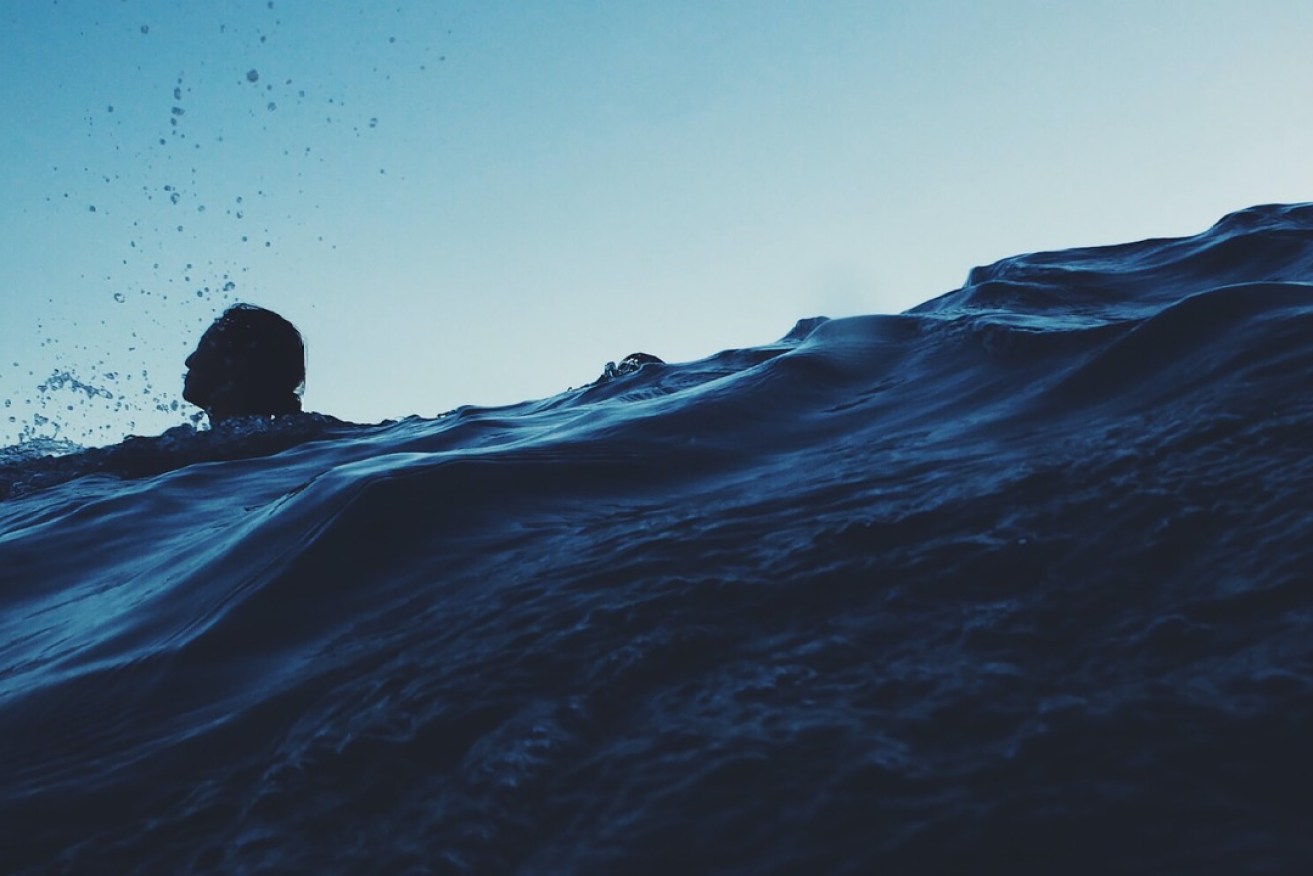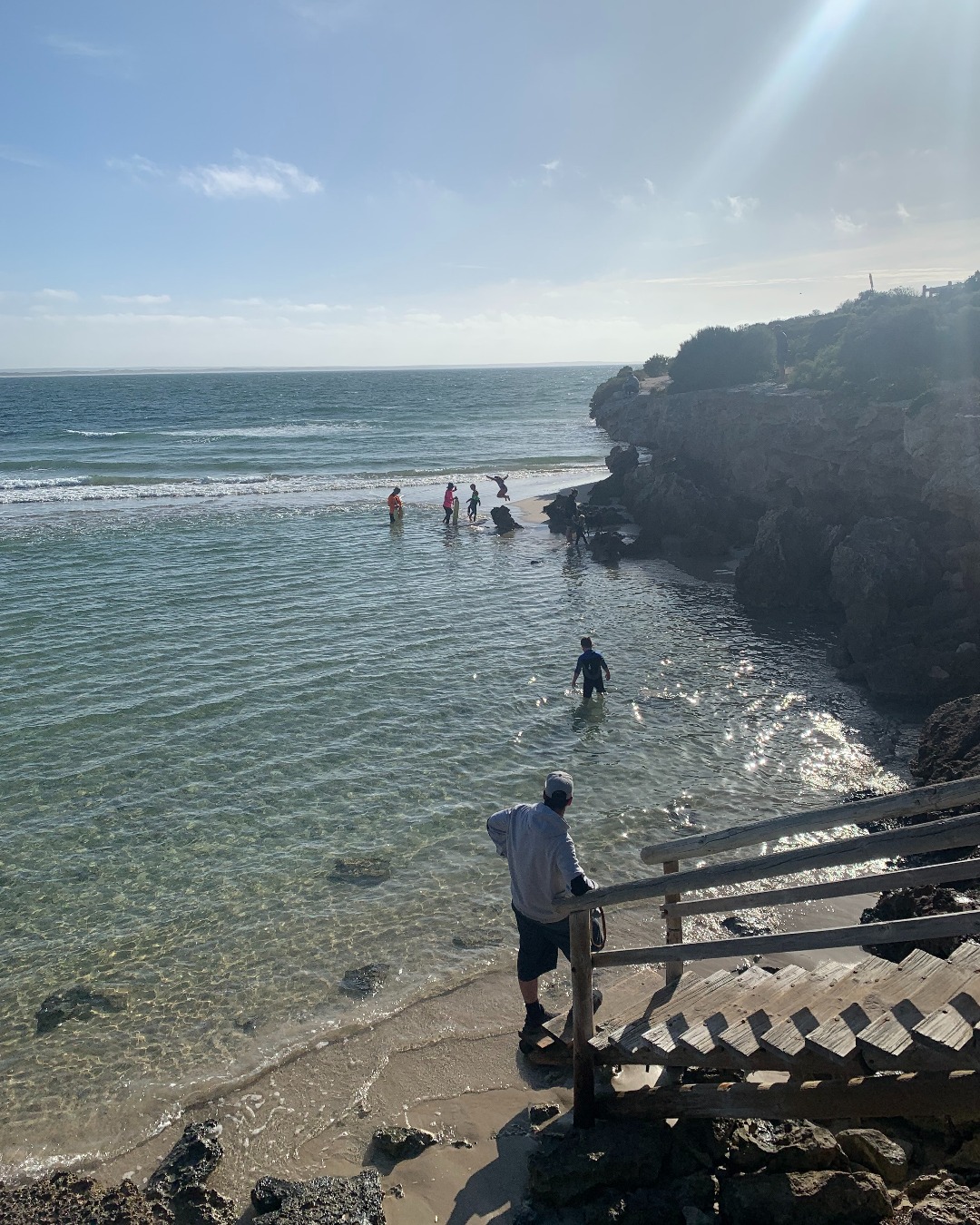The most dangerous thing at the beach? It’s us.
As summer weather finally arrives, Sarah Keenihan reminds us that most of the risks encountered at the beach can easily be managed with just a little education.


Photo: Li Yang
I’m a volunteer lifesaver. It’s a role that provides regular reminders of what is most dangerous at the beach.
It’s us. Humans. We’re dangerous.
Of course, it’s true our state has endured several horrific shark attacks recently. Three people have died, and several others are injured. Affected individuals, families and friends will never be the same again.
But data collected by Surf Lifesaving South Australia reveals it’s not sharks that are the leading cause of death in the ocean. Our state had six coastal drowning deaths in the past year. An additional 70 people were rescued from situations that could have escalated to result in significant injury or death.
While some of these instances result from true accidents, poor decision-making is often key.
Holidaymakers at an Adelaide suburban beach last weekend saw an individual back-flip off a jetty into shallower-than-expected water (due to a low tide and the presence of a sand bar). A horrific lower leg injury resulted – thankfully not a broken spine. Local lifesavers with lifeguards from the state operations centre worked together to remove the person from the water and deliver them into the safe hands of the SA Ambulance service.
I’ve seen another person jump off the same jetty only to realise they weren’t strong enough to swim back to shore, as was their original plan. Lucky for them, off-duty lifesavers were in the water on rescue boards, supervising children at iron-man training. Two men paddled over to the struggling individual, hauled them out of the water and performed first aid with the assistance of others until police and ambulance arrived.
Without immediate help, both incidents could have easily been a drowning. Neither incident would have happened if those involved had come pre-armed with some background knowledge and had taken a quick look around before launching into the sea.
National data reveals an average of 15 deaths per year due to surfing and watercraft activities, many of which could have been prevented.
A survey of surfers revealed two-thirds do not always check surf conditions before entering the water, and one-third disregard “beach closed” signage. More than half of people using watercraft such as boats and kayaks don’t always wear a lifejacket or buoyancy aid. Fifty per cent of people on the water fail to take a buddy with them. Many individuals overestimate their swimming capabilities.
So yes, human behaviour at the beach can be dangerous.
I love summers on the sand, and I’m not saying everyone should stay home – because most of the risks you’ll encounter at the beach can easily be managed.

Assessing the dangers around water is a skill taught to thousands of South Australian children each summer during VacSwim courses such as this one at Marion Bay. Photo: Sarah Keenihan.
Taking time to assess potential dangers before swimming is a skill learned by thousands of South Australian children enrolled in VacSwim every summer.
VacSwim is an initiative that helps kids aged from three to 12 develop skills, stay safe and enjoy positive experiences in the water – including pools, beaches and freshwater locations such as rivers.
All three of my children have attended January VacSwim sessions at Marion Bay, Yorke Peninsula from the age of five. The best instructor we’ve had was a local man – a father, surfer, sailing instructor and experienced watcher of the ocean – who started each session with a question for the children.
“What are the dangers for us today at the beach?” he’d say.
Little voices would shout back responses.
“The sun!” they’d yell, pointing at the sky.
“Correct!” he’d reply. “That’s why we always wear sunscreen, a hat and sunglasses.”
More than 1000 Australians die from melanoma and other skin cancers every year.
“What else is dangerous?” he’d say.
“Standing on the rocks,” the young ones would call out.
“Yes!” the instructor would respond. “Never turn your back on the ocean.”
More than 13 Australians die every year due to being washed out to sea while rock fishing.
Fishing can also be dangerous for people other than those trying to catch dinner. In 2013 my daughter was having a marvellous time playing in a shallow tidal pool at Marion Bay, when she felt a tugging on her foot.
An abandoned fishing hook (with line still attached) had pierced the fleshy part of her toe, and gone straight through. We saw a similar thing happen to another child’s finger in January of this year.
Neither incident would have happened if fishers cleaned up after themselves.
Children enrolled in VacSwim are taught a lot more than just assessing dangers up front. They know the safest place to swim is in between flags on a patrolled beach. They learn what to do if caught in a rip (stay as calm as possible; try and float; don’t swim against the water movement; put your arm up and call to attract attention). They learn how to assist another swimmer in danger. They learn the key steps in first aid, including providing CPR and calling Triple Zero for help.
This week is the final session of VacSwim for the 2023/2024 season. The program has been offered at beaches from Aldinga to Whyalla, at pools from Adelaide Aquatic Centre to Wulunda Rec Centre at Mt Gambier, and in freshwater locations such as Lake Bonney, Renmark and Murray Bridge.
Can I suggest you put a reminder in your calendar to enrol your children for the next summer of VacSwim. What they learn may save their life – or even yours.
Sarah Keenihan is an Adelaide journalist and lifesaver




